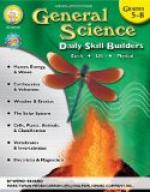Decay is a process of oxidation; the tree which rots slowly away is undergoing oxidation, and the result of the slow burning is the decomposed matter which we see and the invisible gases which pass into the atmosphere. The log which blazes on our hearth gives out sufficient heat to warm us; the log which decays in the forest gives out an equivalent amount of heat, but the heat is evolved so slowly that we are not conscious of it. Burning accompanied by a blaze and intense heat is a rapid process; burning unaccompanied by fire and appreciable heat is a slow, gradual process, requiring days, weeks, and even long years for its completion.
Another form of oxidation occurs daily in the human body. In Section 35 we saw that the human body is an engine whose fuel is food; the burning of that food in the body furnishes the heat necessary for bodily warmth and the energy required for thought and action. Oxygen is essential to burning, and the food fires within the body are kept alive by the oxygen taken into the body at every breath by the lungs. We see now one reason for an abundance of fresh air in daily life.
40. How to Breathe. Air, which is essential to life and health, should enter the body through the nose and not through the mouth. The peculiar nature and arrangement of the membranes of the nose enable the nostrils to clean, and warm, and moisten the air which passes through them to the lungs. Floating around in the atmosphere are dust particles which ought not to get into the lungs. The nose is provided with small hairs and a moist inner membrane which serve as filters in removing solid particles from the air, and in thus purifying it before its entrance into the lungs.
In the immediate neighborhood of three Philadelphia high schools, having an approximate enrollment of over 8000 pupils, is a huge manufacturing plant which day and night pours forth grimy smoke and soot into the atmosphere which must supply oxygen to this vast group of young lives. If the vital importance of nose breathing is impressed upon these young people, the harmful effect of the foul air may be greatly lessened, the smoke particles and germs being held back by the nose filters and never reaching the lungs. If, however, this principle of hygiene is not brought to their attention, the dangerous habit of breathing through the open, or at least partially open, mouth will continue, and objectionable matter will pass through the mouth and find a lodging place in the lungs.
There is another very important reason why nose breathing is preferable to mouth breathing. The temperature of the human body is approximately 98 deg. F., and the air which enters the lungs should not be far below this temperature. If air reaches the lungs through the nose, its journey is relatively long and slow, and there is opportunity for it to be warmed before it reaches the lungs. If, on the other hand, air passes to the lungs by way of the mouth, the warming process is brief and insufficient, and the lungs suffer in consequence. Naturally, the gravest danger is in winter.




